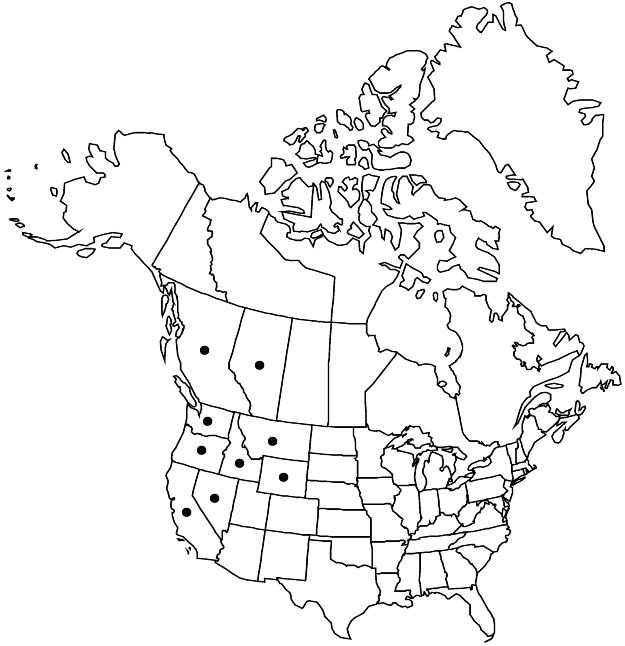Potentilla flabellifolia
Fl. N. Amer. 1: 442. 1840.
Plants ± openly matted; caudex branches short to elongate, ± stout. Stems ascending to erect, (0.3–)1–3 dm, lengths 2 times basal leaves. Basal leaves 2-ranked, ternate, (1–)3–12(–20) cm; stipules: apex rounded; petiole (0.5–)1–15(–18) cm, hairs and glands usually absent; leaflets 3, central widely obovate to flabellate, (0.5–)1–5 × (0.4–)1–3(–3.5) cm, petiolule 0–5(–10) mm, margins flat, not or shallowly lobed (sinuses extending less than 1/2 to midvein), distal 1/2–3/4 usually unevenly incised 1/4–1/2 to midvein, teeth 3–7 per side, often secondarily toothed, surfaces similar, green, hairs absent or sparse, rarely common, 0.5–1 mm, glands absent or sparse. Inflorescences 1–6-flowered. Pedicels straight, 0.3–4.5(–5) cm, not much longer in fruit than in flower. Flowers: epicalyx bractlets often toothed or 2-lobed, elliptic to oval, 3.5–7 × (1–)1.5–3 mm, margins flat; hypanthium 3–7 mm diam.; sepals 4–8 mm, apex acute to obtuse; petals dark yellow, (5–)6–10(–12) × (3–)5–10 mm; filaments 1.5–3 mm, anthers 0.6–1.5 mm; carpels 20–50, styles filiform, not or slightly papillate-swollen proximally, 1.6–2.5 mm. Achenes 1.2–1.5 mm. 2n = 28.
Phenology: Flowering summer.
Habitat: Moist to wet or swampy, sometimes dry, stream banks, lakeshores, meadows, in conifer woodlands, subalpine and alpine grassy, rocky slopes, near or above timberline
Elevation: 1000–3700 m
Distribution

Alta., B.C., Calif., Idaho, Mont., Nev., Oreg., Wash., Wyo.
Discussion
Potentilla flabellifolia is found in the mountains from southern British Columbia, southwestern Alberta, and southwestern Montana to the southern Sierra Nevada of California.
Selected References
None.